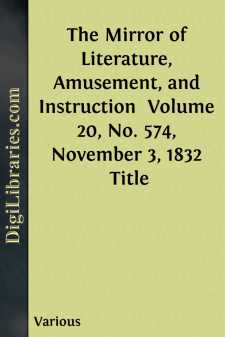Categories
- Antiques & Collectibles 13
- Architecture 36
- Art 48
- Bibles 22
- Biography & Autobiography 815
- Body, Mind & Spirit 144
- Business & Economics 28
- Children's Books 18
- Children's Fiction 14
- Computers 4
- Cooking 94
- Crafts & Hobbies 4
- Drama 346
- Education 58
- Family & Relationships 59
- Fiction 11833
- Games 19
- Gardening 17
- Health & Fitness 34
- History 1378
- House & Home 1
- Humor 147
- Juvenile Fiction 1873
- Juvenile Nonfiction 202
- Language Arts & Disciplines 89
- Law 16
- Literary Collections 686
- Literary Criticism 179
- Mathematics 13
- Medical 41
- Music 40
- Nature 179
- Non-Classifiable 1768
- Performing Arts 7
- Periodicals 1453
- Philosophy 65
- Photography 2
- Poetry 896
- Political Science 203
- Psychology 44
- Reference 154
- Religion 515
- Science 126
- Self-Help 85
- Social Science 82
- Sports & Recreation 34
- Study Aids 3
- Technology & Engineering 59
- Transportation 23
- Travel 463
- True Crime 29
Our website is made possible by displaying online advertisements to our visitors.
Please consider supporting us by disabling your ad blocker.
McClure's Magazine, Vol. 6, No. 3, February 1896
by: Various
Categories:
Description:
Excerpt
LINCOLN'S LIFE AT NEW SALEM FROM 1832 TO 1836.
BERRY AND LINCOLN'S GROCERY.—A SET OF BLACKSTONE'S COMMENTARIES.—BERRY AND LINCOLN TAKE OUT A TAVERN LICENSE.—THE POSTMASTER OF NEW SALEM IN 1833.—LINCOLN BECOMES DEPUTY SURVEYOR.—THE FAILURE OF BERRY AND LINCOLN.—ELECTIONEERING IN ILLINOIS.—LINCOLN CHOSEN ASSEMBLYMAN.—BEGINS TO STUDY LAW.—THE ILLINOIS STATE LEGISLATURE IN 1834.—THE STORY OF ANN RUTLEDGE.—ABRAHAM LINCOLN AT TWENTY-SIX YEARS OF AGE.
Embodying special studies in Lincoln's life at New Salem by J. McCan Davis.
LOOKING FOR WORK.
T was in August, 1832, that Lincoln made his unsuccessful canvass for the Illinois Assembly. The election over, he began to look for work. One of his friends, an admirer of his physical strength, advised him to become a blacksmith, but it was a trade which would afford little leisure for study, and for meeting and talking with men; and he had already resolved, it is evident, that books and men were essential to him. The only employment to be had in New Salem which seemed to offer both support and the opportunities he sought, was clerking in a store; and he applied for a place successively at all of the stores then doing business in New Salem. But they were in greater need of customers than of clerks. The business had been greatly overdone. In the fall of 1832 there were at least four stores in New Salem. The most pretentious was that of Hill and McNeill, which carried a large line of dry goods. The three others, owned by the Herndon Brothers, Reuben Radford, and James Rutledge, were groceries.
DECIDES TO BUY A STORE.
Failing to secure employment at any of these establishments, Lincoln, though without money enough to pay a week's board in advance, resolved to buy a store. He was not long in finding an opportunity to purchase. James Herndon had already sold out his half interest in Herndon Brothers' store to William F. Berry; and Rowan Herndon, not getting along well with Berry, was only too glad to find a purchaser of his half in the person of "Abe" Lincoln. Berry was as poor as Lincoln; but that was not a serious obstacle, for their notes were accepted for the Herndon stock of goods. They had barely hung out their sign when something happened which threw another store into their hands. Reuben Radford had made himself obnoxious to the Clary's Grove Boys, and one night they broke in his doors and windows, and overturned his counters and sugar barrels. It was too much for Radford, and he sold out next day to William G. Green for a four-hundred-dollar note signed by Green. At the latter's request, Lincoln made an inventory of the stock, and offered him six hundred and fifty dollars for it—a proposition which was cheerfully accepted. Berry and Lincoln, being unable to pay cash, assumed the four-hundred-dollar note payable to Radford, and gave Green their joint note for two hundred and fifty dollars. The little grocery owned by James Rutledge was the next to succumb. Berry and Lincoln bought it at a bargain, their joint note taking the place of cash....












